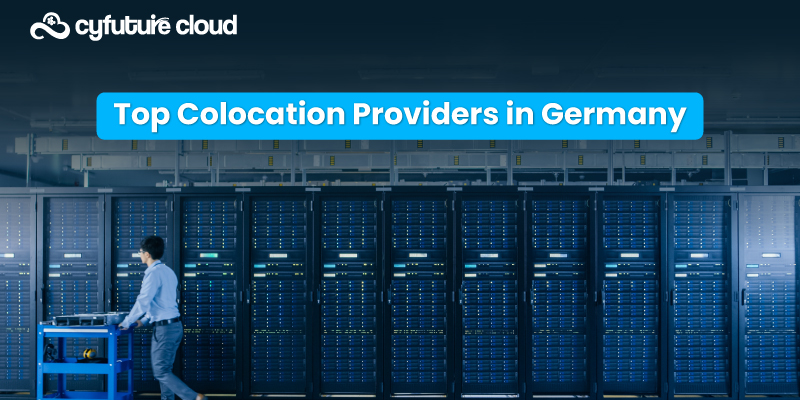Table of Contents
Picture this: you’re sitting at your desk, trying to finish up some important work, but your computer just won’t cooperate. Sound familiar? Slow internet and overloaded servers can be a real headache, but what if there was a solution? Enter decentralized cloud computing, a game-changing technology that could revolutionize the way we store and access data online. According to a recent report by MarketsandMarkets, the decentralized cloud computing market is expected to reach $3.3 billion by 2024, growing at a compound annual growth rate (CAGR) of 50.2%. But, as with any new technology, there are still some challenges to overcome. One of these challenges is privacy and security. This is where zero Ethereum knowledge comes in. In this article, we’ll explore the role of zero Ethereum knowledge in decentralized cloud computing and why it’s important for the future of the industry.
What is Zero Ethereum Knowledge?
In the world of blockchain and decentralized systems, privacy and security are paramount. However, traditional methods of achieving these goals, such as encryption, often require sharing some level of data with a third party. This is where zero Ethereum knowledge comes in. Zero Ethereum knowledge, also known as zero-knowledge proofs, is a cryptographic technique that allows for the verification of information without revealing any underlying data. According to a report by Grand View Research, the global zero-knowledge proofs market is expected to reach $1.27 billion by 2025, growing at a CAGR of 41.2%. So, how does zero Ethereum knowledge work, and what benefits does it offer?
Zero Ethereum knowledge is based on the concept of proving possession of a secret without revealing that secret. This is done by breaking down a piece of information into smaller parts, or “commitments,” which can be verified without revealing the underlying data. This allows for the verification of information without revealing any sensitive details, making it a powerful tool for privacy and security in decentralized systems.
Compared to other privacy-enhancing technologies, such as encryption and hashing, zero Ethereum knowledge offers a higher level of privacy since it allows for verification without revealing any underlying data. Encryption, on the other hand, requires the sharing of a key or password with a third party, which can be a potential point of weakness. Similarly, hashing can be reversed using brute force attacks, whereas zero Ethereum knowledge proofs cannot.
Overall, zero Ethereum knowledge is a powerful tool for privacy and security in decentralized systems, offering a higher level of privacy than other methods while maintaining the integrity of the underlying data.
Decentralized Cloud Computing
Decentralized cloud computing is an emerging technology that seeks to address the challenges of traditional cloud computing by distributing data storage and processing across a network of computers. Unlike traditional cloud computing, which relies on centralized servers owned by a single entity, decentralized cloud computing leverages the power of peer-to-peer networks to store and process data in a distributed manner.
One of the biggest advantages of decentralized cloud computing is its resilience to outages and downtime. Traditional cloud computing services are vulnerable to disruptions caused by server failures or network congestion, which can result in lost productivity and revenue. Decentralized cloud computing, on the other hand, is designed to be more fault-tolerant, as data and processing are distributed across a network of nodes rather than concentrated in a single location.
Another advantage of decentralized cloud computing is its potential for increased privacy and security. With traditional cloud computing, users are often required to trust a third-party provider with their sensitive data. Decentralized cloud computing, however, allows users to maintain more control over their data and keep it private by leveraging zero Ethereum knowledge proofs for verification.
However, decentralized cloud computing is not without its challenges. One of the biggest hurdles facing the technology is the need for robust and scalable infrastructure. Building and maintaining a decentralized cloud computing network requires a significant investment in hardware, software, and human resources. Additionally, interoperability between different decentralized cloud computing networks is a challenge that must be overcome for the technology to reach its full potential.
Despite these challenges, the decentralized cloud computing market is expected to grow rapidly in the coming years. According to a report by Allied Market Research, the global decentralized cloud computing market is expected to reach $62.4 billion by 2026, growing at a CAGR of 25.3%. As the technology matures and infrastructure becomes more readily available, decentralized cloud computing has the potential to revolutionize the way we store and process data online.
The Role of Zero Ethereum Knowledge in Decentralized Cloud Computing
As we’ve discussed, decentralized cloud computing has the potential to revolutionize the way we store and process data online. However, the technology also poses unique challenges when it comes to privacy and security. That’s where zero Ethereum knowledge comes in. By leveraging zero Ethereum knowledge proofs for verification, decentralized cloud computing can offer a higher level of privacy and security than traditional cloud computing methods. Let’s explore how zero Ethereum knowledge is implemented in decentralized cloud computing and some of its potential use cases.
Zero Ethereum knowledge is implemented in decentralized cloud computing by breaking down data into smaller “commitments,” which can be verified without revealing the underlying data. This allows for the verification of information without sharing any sensitive details, maintaining the privacy and security of the underlying data.
One potential use case for zero Ethereum knowledge in decentralized cloud computing is in the storage and sharing of sensitive data. For example, in the healthcare industry, patient records must be stored and shared in a secure and compliant manner. By leveraging zero Ethereum knowledge, decentralized cloud computing can provide a secure and private method for storing and sharing patient data.
Another potential use case for zero Ethereum knowledge in decentralized cloud computing is in the processing of financial transactions. By using zero Ethereum knowledge proofs to verify transaction information, decentralized cloud computing can offer a more secure and private alternative to traditional payment processing methods.
Overall, zero Ethereum knowledge is a powerful tool for enhancing privacy and security in decentralized cloud computing. As the technology continues to evolve, we can expect to see more innovative use cases emerge, further cementing the role of zero Ethereum knowledge in the future of decentralized cloud computing.
Benefits of Zero Ethereum Knowledge in Decentralized Cloud Computing
The implementation of zero Ethereum knowledge in decentralized cloud computing brings a range of benefits to both users and cloud providers. By enhancing privacy and security while also improving scalability and efficiency, zero Ethereum knowledge is poised to transform the decentralized cloud computing industry. Let’s take a closer look at some of the key benefits of using zero Ethereum knowledge in decentralized cloud computing.
First and foremost, zero Ethereum knowledge offers enhanced privacy and security for user data. By breaking down data into smaller commitments that can be verified without revealing the underlying data, zero Ethereum knowledge allows users to maintain greater control over their sensitive information. This is especially important in industries where data privacy is critical, such as healthcare, finance, and e-commerce.
Another benefit of zero Ethereum knowledge in decentralized cloud computing is improved scalability and efficiency. By distributing data storage and processing across a network of nodes, decentralized cloud computing is designed to be more fault-tolerant and resilient than traditional cloud computing. This results in faster processing times, increased availability, and improved overall performance.
Finally, the use of zero Ethereum knowledge can lead to lower costs for cloud providers. By reducing the need for expensive hardware and software, cloud providers can lower their operational costs while still providing a high-quality service to their users. Additionally, the use of zero Ethereum knowledge can help to reduce the risk of data breaches and other security incidents, which can be costly for cloud providers in terms of both financial and reputational damage.
Overall, the benefits of zero Ethereum knowledge in decentralized cloud computing are clear. By enhancing privacy and security while also improving scalability and efficiency, zero Ethereum knowledge has the potential to transform the way we store and process data online, creating a more secure, reliable, and cost-effective cloud computing ecosystem.
Challenges and Limitations of Zero Ethereum Knowledge in Decentralized Cloud Computing
While the benefits of zero Ethereum knowledge in decentralized cloud computing are significant, there are also several challenges and limitations that must be overcome before widespread adoption can occur. These challenges include technical limitations, regulatory and legal hurdles, and issues related to adoption and acceptance by cloud providers and users.
One of the main technical challenges associated with zero Ethereum knowledge in decentralized cloud computing is the complexity of implementation. The technology is still relatively new, and there are few established best practices for integrating zero Ethereum knowledge into existing cloud computing infrastructure. Additionally, the verification process for zero Ethereum knowledge proofs can be resource-intensive, which can lead to performance issues and increased costs for cloud providers.
Regulatory and legal challenges also pose a significant hurdle to the adoption of zero Ethereum knowledge in decentralized cloud computing. As with any new technology, there is a lack of clarity around how zero Ethereum knowledge fits into existing regulatory frameworks. This can create uncertainty for cloud providers and users, who may be hesitant to adopt the technology until legal and regulatory issues are resolved.
Finally, the adoption and acceptance of zero Ethereum knowledge in decentralized cloud computing may be hindered by a lack of awareness and education among cloud providers and users. While the benefits of the technology are clear, many people may be unfamiliar with zero Ethereum knowledge and how it works. This can make it difficult for cloud providers to market the technology effectively and for users to understand the value proposition.
Despite these challenges, the potential benefits of zero Ethereum knowledge in decentralized cloud computing are significant. As the technology continues to evolve and mature, we can expect to see more solutions emerge to address these challenges, paving the way for a more secure, efficient, and privacy-enhancing decentralized cloud computing ecosystem.
In a Nutshell
In conclusion, zero Ethereum knowledge represents a promising development in the world of decentralized cloud computing. By offering enhanced privacy and security, improved scalability and efficiency, and lower costs for cloud providers, zero Ethereum knowledge has the potential to transform the way we store and process data online.
The use of zero Ethereum knowledge is still in its early stages, and there are several challenges and limitations that must be overcome before it can be widely adopted. However, as the technology continues to evolve and mature, we can expect to see more solutions emerge to address these challenges and pave the way for a more secure, efficient, and privacy-enhancing decentralized cloud computing ecosystem.
Looking ahead, we can expect to see continued innovation in the field of decentralized cloud computing, with new solutions and technologies emerging to meet the evolving needs of cloud providers and users. As the importance of data privacy and security continues to grow, we can expect to see increased demand for solutions that offer enhanced privacy and security, such as zero Ethereum knowledge. With its unique combination of benefits, zero Ethereum knowledge is poised to play a key role in the future of decentralized cloud computing.
Recent Post
Send this to a friend

 Server
Colocation
Server
Colocation CDN
Network
CDN
Network Linux
Cloud Hosting
Linux
Cloud Hosting Kubernetes
Kubernetes Pricing
Calculator
Pricing
Calculator
 Power
Power
 Utilities
Utilities VMware
Private Cloud
VMware
Private Cloud VMware
on AWS
VMware
on AWS VMware
on Azure
VMware
on Azure Service
Level Agreement
Service
Level Agreement 



















